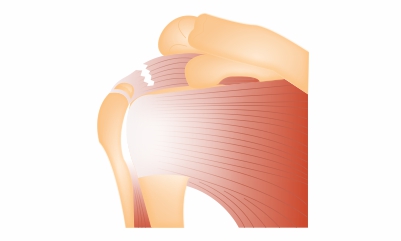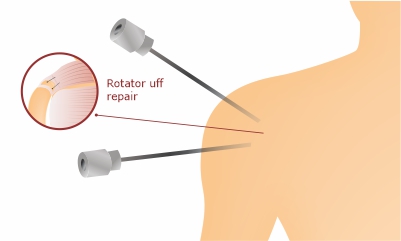Rotator Cuff Tears

The rotator cuff consists of four different muscles and tendons. It stabilizes shoulder during every movement. Though it injured commonly and these injuries of rotator cuff are tendinitis, bursitis, and muscle strains. The injuries of rotator cuff can be mild ( partial tear) to severe (full-thickness tear).
Causes of rotator cuff injuries
- Repetitive injuries to shoulder (rotator cuff injuries)
- Degenerative changes (wear and tear with growing age)
- Repetitive overhead activities of shoulder
- Carry heavyweight for a long time can also cause rotator cuff tear
- Job profile/occupation that requires the same movement repetition like painters, housemaids
- Family history
Types of rotator cuff tear
- Normal wear and tear with age
- Tendinitis- Inflammation of rotator cuff tendons because of overuse
- Bursitis- Inflammation of bursa. Irritation may be one of the causes of inflammation
- Strain/tear of rotator cuff tendon – can occur due to overstretching, repetitive activity of shoulder joint, and unhealed tendinitis can also cause tendon tear
- Shoulder impingement- when the muscles /tendons rub against the shoulder bones and causes pain is called shoulder impingement
Symptoms of torn rotator cuff
- Pain deep in shoulder
- Difficulty in combing the hairs
- Swelling may be present around shoulder
- You will feel weakness while moving your arm
- Pain and difficulty in the complete shoulder movements
- Pain in sleeping on the affected shoulder
- Tenderness during overhead activities
- Difficulty and pain while moving your arms behind the back
Diagnosis
- Your doctor will examine and assess you physically, he will check for range of motion and tenderness, and muscular strength
- Your doctor will prescribe x-ray to see any bone injury or bone spur or osteoarthritis of the AC joint or shoulder joint. Rotator cuff is not visible in the X-ray because it is soft tissue
- Ultrasound can be prescribed to check the muscles and tendons
- MRI is a specific investigation and commonly prescribed by doctors in case of rotator cuff injuries
- Conservative
- Rest and don’t move the affected shoulder too much, this will increase the injury
- Ice and heat therapy helps in reducing the inflammation and pain
- Support the arm and shoulder with a sling support
- Physiotherapy exercises to enhance the muscle strength of shoulder joint, and to improve the shoulder range of motion
- Anti-inflammatory medication to reduce the inflammation and pain killer medicines
- Steroids injections are given in the affected area to reduce pain and inflammation

- Surgery Most cases are treated without surgery but if the damage is severe and pain becomes worse then there is a need for surgical correction.
- Arthroscopy: Rotator cuff repair with arthroscopy which is a keyhole procedure.
- Open surgical repair of rotator cuff injury
- Tendon transfer
- Shoulder replacement: In rare cases and in severe or massive injuries of rotator cuff
